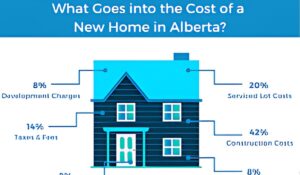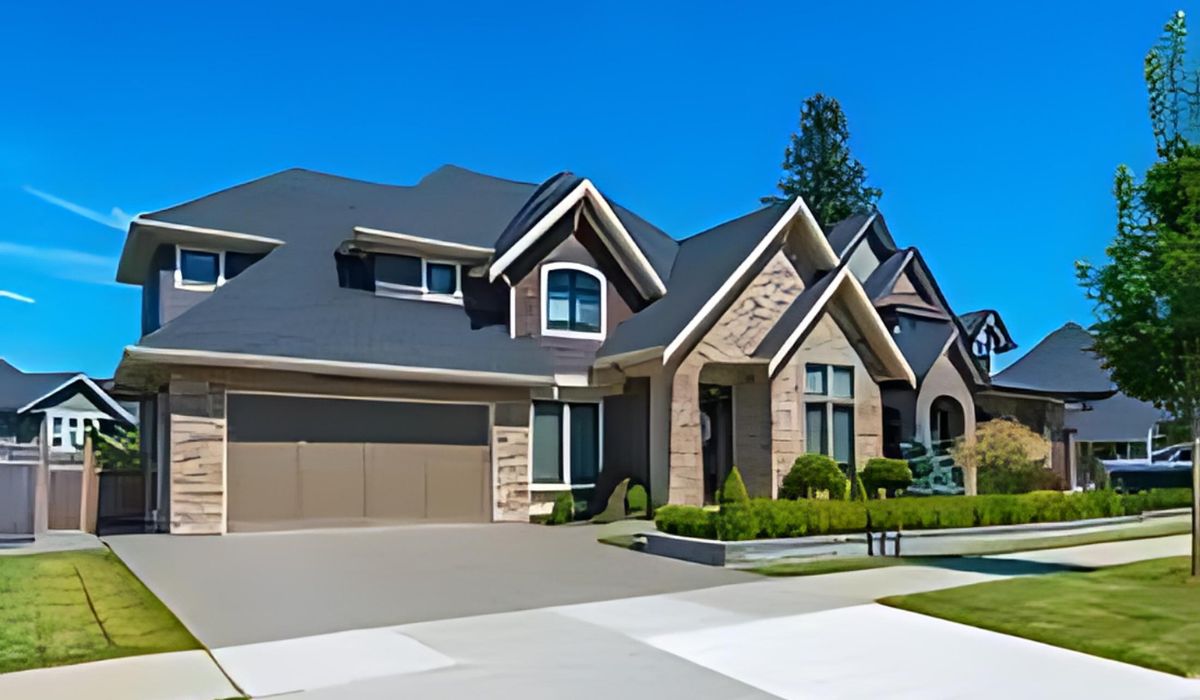Building a house is one of the most significant financial commitments one can undertake. The cost to build a house can vary widely depending on numerous factors, including location, size, design, materials, labor, and local market conditions. This article will delve into these factors to provide a comprehensive overview of what influences the cost of building a house and offer some insights into how to budget for such a project.
1. Location
The location of the house is one of the primary determinants of construction costs. Building in urban areas or regions with high demand for real estate generally costs more due to higher land prices and labor costs. Conversely, rural areas often offer more affordable land and labor. Additionally, local building codes and regulations can affect costs, as stricter standards might require more expensive materials or additional labor.
- Urban Areas: Higher land costs, higher labor costs, stricter building codes.
- Rural Areas: Lower land costs, potentially lower labor costs, less stringent building codes.
2. Size and Design
The size and complexity of the house significantly impact the overall cost. A larger house requires more materials and labor, leading to higher costs. Moreover, the design and architectural style can also influence the budget. Custom designs or homes with unique features, such as high ceilings, intricate rooflines, or specialty rooms, typically cost more than standard designs.
- Square Footage: More square footage means higher costs.
- Architectural Complexity: Custom or complex designs increase costs.
3. Materials
The choice of materials can greatly affect the cost of building a house. High-end materials, such as marble countertops, hardwood floors, and custom cabinetry, are more expensive than standard options like laminate countertops, carpet, and stock cabinets. Additionally, the cost of materials can vary based on availability and market fluctuations.
- High-End Materials: Higher quality, higher cost.
- Standard Materials: More affordable, widely available.
4. Labor
Labor costs are another major factor in the overall cost of building a house. Skilled labor, such as electricians, plumbers, and carpenters, typically charges higher rates than general labor. Additionally, the local labor market can influence costs; areas with a shortage of skilled workers may see higher labor costs.
- Skilled Labor: Higher costs due to expertise.
- General Labor: Lower costs, but potentially lower quality.
5. Permits and Fees
Building a house requires various permits and fees, which can add to the overall cost. These include building permits, inspection fees, and impact fees. The cost of permits and fees can vary widely depending on the location and scope of the project.
- Building Permits: Required for most construction projects.
- Inspection Fees: Regular inspections to ensure code compliance.
- Impact Fees: Charges for the impact of new construction on public infrastructure.
6. Utilities and Infrastructure
The cost of connecting to utilities and infrastructure, such as water, sewer, electricity, and gas, can also add to the total cost. In some cases, particularly in rural areas, additional infrastructure, such as septic systems or wells, may be required.
- Utility Connections: Fees for connecting to public utilities.
- Infrastructure Development: Costs for developing necessary infrastructure.
7. Financing Costs
If financing is required to build the house, the cost of borrowing must be considered. This includes interest on construction loans, origination fees, and other related expenses. The interest rate and terms of the loan can significantly impact the overall cost.
- Construction Loans: Interest and fees associated with borrowing.
- Interest Rates: Higher rates increase borrowing costs.
8. Unexpected Costs
It is also essential to budget for unexpected costs, which are common in construction projects. These can include unforeseen site conditions, changes in material prices, or additional work required to meet building codes or address issues discovered during construction.
- Contingency Fund: Setting aside a portion of the budget for unexpected expenses.
- Change Orders: Costs associated with changes to the original plan.
Average Cost Breakdown

To provide a more concrete understanding of how much it costs to build a house, let’s look at an example breakdown of costs for a typical 2,500 square foot single-family home in the United States, based on recent data:
- Land: $50,000 – $150,000
- Site Work: $10,000 – $25,000
- Foundation: $10,000 – $30,000
- Framing: $30,000 – $50,000
- Exterior Finishes: $20,000 – $40,000
- Major Systems (Plumbing, Electrical, HVAC): $30,000 – $50,000
- Interior Finishes: $40,000 – $100,000
- Final Steps (Landscaping, Driveways, etc.): $10,000 – $30,000
- Permits and Fees: $5,000 – $15,000
- Miscellaneous (Design Fees, Contingencies, etc.): $10,000 – $25,000
Total Estimated Cost: $215,000 – $515,000
FAQ: Cost of Building a House
1. How much does it cost to build a house on average in the United States?
The average cost to build a house in the United States ranges from $100 to $200 per square foot. For a typical 2,500 square foot single-family home, this translates to total costs between $215,000 and $515,000, depending on various factors.
2. What factors influence the cost of building a house?
Several factors influence the cost of building a house, including:
- Location
- Size and design
- Choice of materials
- Labor costs
- Permits and fees
- Utilities and infrastructure
- Financing costs
- Unexpected costs and contingencies
3. How does the location affect building costs?
Building in urban areas or regions with high demand for real estate usually costs more due to higher land prices and labor costs. Rural areas often offer more affordable land and labor. Local building codes and regulations can also impact costs.
4. What are the main expenses in building a house?
The main expenses in building a house include:
- Land purchase
- Site work and foundation
- Framing and structural elements
- Exterior and interior finishes
- Major systems (plumbing, electrical, HVAC)
- Permits and fees
- Final steps (landscaping, driveways, etc.)
- Miscellaneous costs (design fees, contingencies)
5. How do the size and design of the house impact the cost?
Larger houses require more materials and labor, increasing the overall cost. Custom designs or homes with unique features, such as high ceilings or specialty rooms, also tend to cost more than standard designs due to increased complexity and material requirements.
6. How much do materials affect the cost of building a house?
The choice of materials can significantly impact costs. High-end materials, such as marble countertops and hardwood floors, are more expensive than standard options like laminate countertops and carpet. Material costs can also fluctuate based on market conditions and availability.
7. What are the typical labor costs in house construction?
Labor costs vary based on the type of work and the local labor market. Skilled labor, such as electricians, plumbers, and carpenters, typically charges higher rates. In areas with a shortage of skilled workers, labor costs can be even higher.
8. What permits and fees are required for building a house?
Building a house usually requires several permits and fees, including:
- Building permits
- Inspection fees
- Impact fees The costs of these permits and fees can vary depending on the location and scope of the project.
9. How much should I budget for utilities and infrastructure?
The cost of connecting to utilities and infrastructure, such as water, sewer, electricity, and gas, can vary. In some cases, especially in rural areas, additional infrastructure, like septic systems or wells, may be needed, adding to the overall cost.
10. What are the financing costs associated with building a house?
Financing costs include interest on construction loans, origination fees, and other related expenses. The interest rate and terms of the loan can significantly impact the overall cost of the project.
11. How should I prepare for unexpected costs during construction?
It is essential to budget for unexpected costs, which are common in construction projects. Setting aside a contingency fund, typically around 10-20% of the total budget, can help cover unforeseen expenses, such as changes in material prices or additional work required to meet building codes.
12. Can building a house be cheaper than buying an existing one?
Building a house can be cheaper than buying an existing one, especially if you have control over the design, materials, and construction process. However, this is not always the case, as market conditions, location, and personal preferences can influence the final cost.
13. What are some tips for reducing the cost of building a house?
To reduce the cost of building a house, consider the following tips:
- Choose a standard design or floor plan
- Use cost-effective materials
- Obtain multiple quotes from contractors
- Plan and budget carefully to avoid changes during construction
- Build in a location with lower land and labor costs
14. How long does it take to build a house?
The time to build a house can vary, but on average, it takes about 7 to 12 months from start to finish. This timeline can be affected by factors such as the complexity of the design, weather conditions, availability of materials and labor, and permitting processes.
15. Do I need a construction loan to build a house?
Most people require a construction loan to finance the building of a house. A construction loan provides the funds needed to cover the costs during the construction phase and is usually converted into a traditional mortgage once the house is completed.
Conclusion
The cost to build a house can vary widely based on numerous factors, including location, size, design, materials, labor, permits, utilities, financing, and unexpected expenses. On average, the cost to build a house in the United States can range from $100 to $200 per square foot, with total costs for a typical single-family home ranging from $215,000 to $515,000. Proper planning, budgeting, and understanding of these factors are crucial to ensuring a successful and financially manageable construction project.
In summary, while building a house is a substantial financial undertaking, it also offers the opportunity to create a personalized living space that meets your specific needs and preferences. By carefully considering the various cost factors and planning accordingly, you can navigate the complexities of home construction and achieve your dream home within your budget.







































